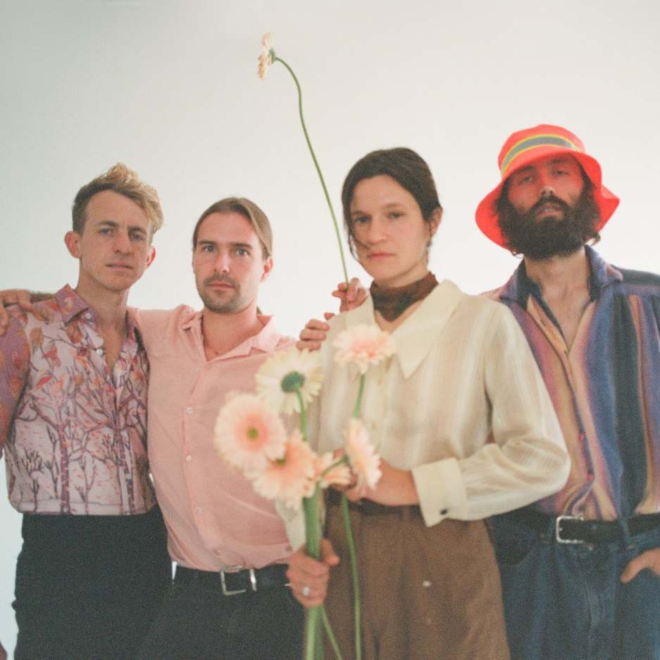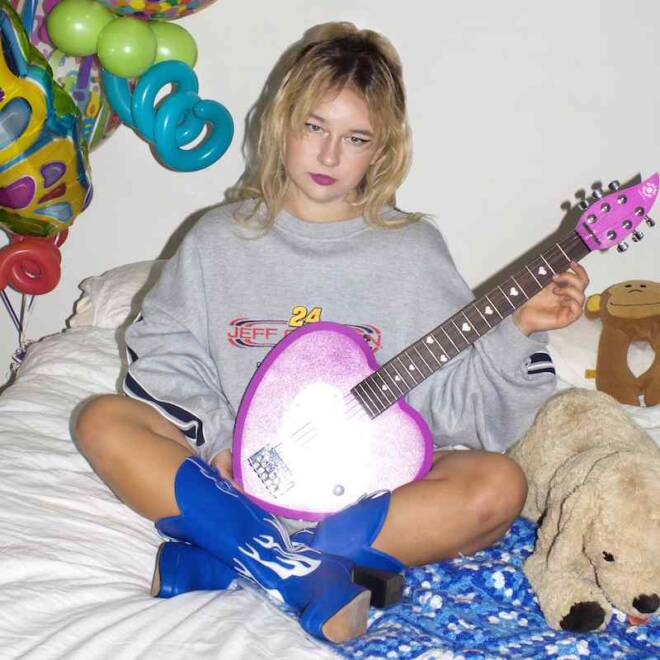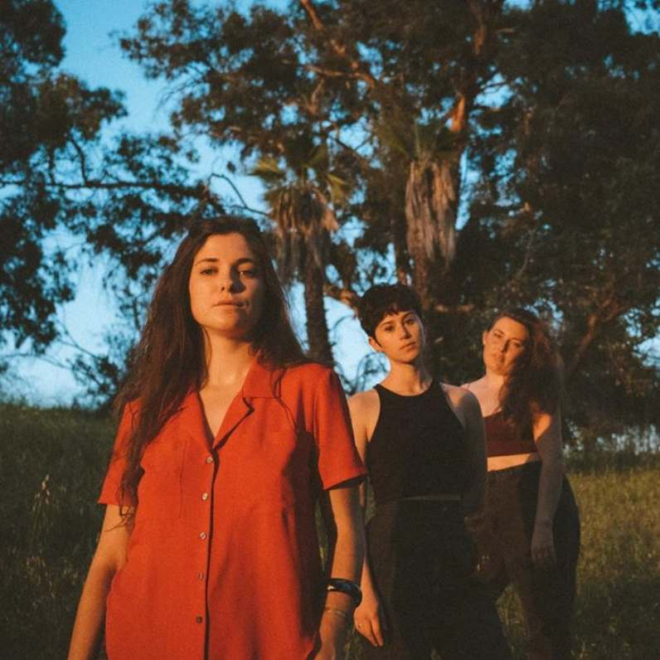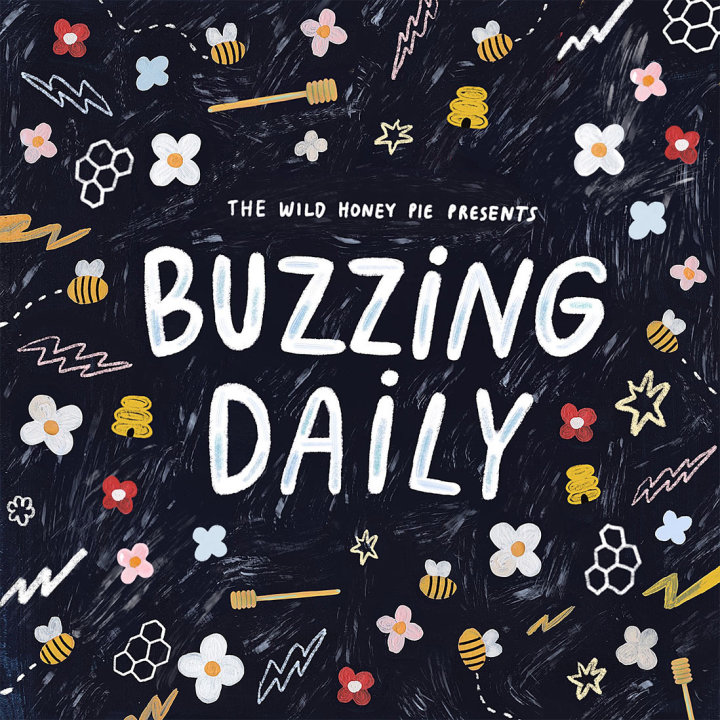
Big Thief - Change
Change is a difficult thing to embrace, as likely to rattle existence like a disaster as something divine. At times it’s hard to look at change as anything but a Grim Reaper, sweeping away everything that is known and comfortable and loved. Other times, change and its inevitability seems like a powerful crusader of hope and liberation. Big Thief’s latest single unconditionally embraces all of change’s faces—the beautiful and the grotesque—and attempts to forge a kinder relationship with all of them. The song’s arrangement is sparse and intimate, like a living room jam session full of friends and loved ones. A shaker and acoustic guitar establish the song’s pulse as steady and slow, like a resting heart rate just as you’re falling asleep. Natural imagery weaves with metaphor among the lyrics, delivered with a sense of gentleness and hope that burns bright like a candle. It chases out any sense of fear and the darkness that comes with it. Change, and the liberation it offers, is asked for so deeply and so intensely that it comes out sounding like a prayer. In offering, the void of whatever was held before remains empty. In its place begins the construction of a new home for peace, where you hope that it will someday soon come home to roost. That its warm and feathered body will nestle in your breast and your heart will know lightness once more. For now, that space among your ribs may stand empty and bruised, but nothing can stand against change. Might as well embrace it, and learn to love it too. Photo by Alexa Viscius.
— Allison Hill on October 13, 2021


 Tuesday Faust - Grace
Tuesday Faust - Grace
What happens when the present painfully collides with the future you imagined? It’s a question that Portland-based artist Tuesday Faust explores on her latest single, "Grace." Launching with a clanging train bell, the track establishes itself as an incredibly vivid storybook of a song. The lyrical narrative begins at the end of another story, with the opening line, “when she walked away, the train came.” The way it’s phrased, it almost sounds like she chose to walk away, and that somehow caused the train to arrive. Or perhaps it was a random coincidence of timing. Either way, one thing appeared as the other disappeared. Throughout the rest of the song, the narrator tries to reconcile the two and bring them back into the same space, even as she chooses to get onboard the train that carries her away. A synthetic whistle reminiscent of Thomas the Tank Engine begins to punctuate the end of phrases as soon as the figurative train arrives. The ironically tuneful whistle juxtaposed against viscerally visual, serious lyrics makes the story feel both dreamlike and achingly real. At the tail end of the track, the texture shifts to something minor and vaguely modal, resolving somewhere unexpected and open-ended. Charmingly existential, "Grace" straddles the line between literal and metaphorical, and takes up space in the back of your brain for days.
— Allison Hill on October 13, 2020


 Xavier Omär - Like I Feel (feat. Mereba)
Xavier Omär - Like I Feel (feat. Mereba)
Every day contemporary music makes an ascension towards a production-led apex. The introduction of new stylistic approaches and advances to music has given artists and producers the ability to breach parameters of seemingly set genres, redefining music entirely while establishing a more creative and inclusive industry. Yet in all the good that comes with new means and styles of production, there are two sides to this coin, and many have argued that modern music production is oversaturated and is beginning to replace artist originality.
Dazzling the world with both top-notch production and sublime artistry, Xavier Omär and Mereba give music fanatics the perfect middle ground in their latest collaboration, “Like I Feel.” The track deciphers the internal musings of a pair of not-really-friends in order to answer the ultimate question, “Do you feel about me how I feel about you?” Vocally, the song stretches to planes outside of this one, with both artists gracefully re-intertwining soul into contemporary R&B with each stirring verse topping a bass and drum-heavy beat. “Like I Feel” is the presumptive eleventh track on Omär’s forthcoming album, if You Feel, preluded by “So Much More” and “All Our Time” featuring Jae Stephens.
The San Antonio R&B/soul artist is much known for his passionate track “Blind Man,” a track sporting 61 million Spotify streams and counting. Whether you’ve been rocking with Omär since his 2016 album, The Everlasting Wave, or happily discovering him from this new story-like track, the everlasting soul and passion in each of his songs will be enough to keep you satiated until the new album drops. Photo by ReeL HuMn / Brandon Lavender.
— Bianca Brown on October 9, 2020


 Tim Atlas - Cold Shoulder
Tim Atlas - Cold Shoulder
Tim Atlas stays true to his DIY roots on “Cold Shoulder,” a lo-fi tune that questions what vulnerability is worth. Penned, produced and mixed entirely by Atlas, the single teases his upcoming third EP, which will be his first as a fresh signing to Nettwerk Records. The R&B-saturated pop track blends ever-so-slightly dissonant chords with an animated beat as Atlas comes to terms with the end of something ambiguous, perhaps not worth calling a relationship, that was doomed from the start. “Drinking in the basement / Sinking in my own self doubt” has Atlas asking himself if he was the fool all along for leaving himself unguarded, if a shoulder to lean on was really so much to ask. For me, I’ve all but forgotten how to talk to people this year, much less forge intimate connections in an already vulnerable state. I see myself “scroll the web just to feel closer” all the time, and feel Atlas’ regret in letting someone in. It's barely a whisper, the way Atlas distorts his voice to confess: “I wish you'd call just to say hi to me." “Cold Shoulder” perfectly encapsulates the ennui and introspection that so characterizes bedroom pop.
— Ysabella Monton on October 9, 2020


 Couch Prints - Faces
Couch Prints - Faces
Couch Prints is back with an electric anthem for those with recurring dreams and love spells. Songwriters Brandon Tong and Jake Truax have found an honest way to embody the perseverance that true love (even inexplicable love) can inspire without abandoning the celebration of inner strength that pales every other question and concern. The audience will undergo a resurrection with lead singer, Jayanna Roberts. Angelic tones and instrumental drones dawn an awakening that builds as if the song is slowly fighting to stand vertebra by vertebra. Eventually, Roberts charges forth to meet her fate. "I'm getting so familiar," she laments, with extraordinary confidence. "Faces" is an unconditionally loving friend to those who have chosen to follow their hearts, in spite of what the past has warned against. Photo by Wade Schaul.
— Daphne Ellis on October 9, 2020


 Jeremy Schmett - Devil
Jeremy Schmett - Devil
To put it simply, “Devil” is a groove to get lost in. There is a special vibrance about Jeremy Schmett’s debut as a solo artist that is filled with honesty and grit, as well as optimism and uplifting cadence, as this LA-based producer/guitarist is not afraid to be his true self on all platforms. While the track initially hits your ears as an indie rock/pop tune, layers of Schmett’s jazz and soul influences peel back to reveal his myriad capabilities, as he "dances with the devil in a pretty dress on the floor.” This is an artist to be on the lookout for; a male Maggie Rogers with the guitar prowess of Tom Misch. We can’t wait to see what kinds of genre-bending genius comes from Jeremy Schmett as he continues to make his mark on the indie music scene.
— Elizabeth Woolf on October 9, 2020
Mallrat - Rockstar
Australian singer Mallrat’s languid new single “Rockstar” strips her electro-pop down to something darker, claiming ownership of her own heartbreak. Pulling away from her usual electro-pop form, the track finds Mallrat leaning into a 90's Britpop and psych rock sound straight from the dated living room in the single’s album art. Trading in bouncing synths for weary chords, the song exists in the exhaust haze her last lover left behind. “Don't think you're slick for cashing in on my magic,” she calls out, and you wonder what it truly takes to obliterate those memories. Someone can take advantage of you in every which way, and even the glamorous distraction of being married to a rockstar, having a family and shelves lined with awards may never be enough.
But by reclaiming the narrative, Mallrat shows that there’s strength to existing in those feelings. Melancholy evolves into a self-satisfied apathy; she knows now that “When you call my name it’ll be too late,” while the groggy guitar outro serves as the final blow, pummeling those insecurities into the ground. In a statement, Mallrat explained how the songs she’s written lately “have been me realising my power.” While she’s made her name known with a handful of EPs since 2016, “Rockstar” is the lead single from her upcoming debut album due sometime in 2021.
— Ysabella Monton on October 8, 2020


 FELIVAND - Midsummer Sun
FELIVAND - Midsummer Sun
This recent single from Australian artist FELIVAND feels vintage yet brand new, giving timeless themes new life. The synths develop such rich character and attitude, while her vocals feel like a fresh wrinkle in today’s incredible alt-R&B scene. The second verse opens with a line that I’ve kept returning to — “Every time I see you, feel like I gotta re-meet you” — and ends by asking, “What happened to the person I knew?” It’s a moving distillation of the song’s theme. FELIVAND reaching out for someone that’s just not there to reach back any more. A gut-wrenching line that suggests this has been a repeated effort. Trying, hoping, believing that what once was good can be good again. But the ship has sailed, or rather we find that it’s not even the same ship anymore — a devastating result. And as we feel for FELIVAND, we see there’s more damage being done. This propels us into the bridge, an incredibly powerful highlight moment of the song. FELIVAND shines beneath this spotlight, a moment full of so much emotion and soul, with palpable pain. There’s no beating around the bush anymore: “You don't think of consequence, the wrong type of confidence. You're hurting your friends.” Can’t get enough? Us either. Good news: her newest single “Ebb & Flow” just came out today as well.
— Max Himelhoch on October 8, 2020
Stilljill - Waterslides
With its jewel-toned melodies and seamless harmonies, "Waterslides," the newest track from eclectic LA-based womxn-powered group Stilljill, gleams like a rose quartz in the sun. The track’s shimmering synth tones, jangly guitar interludes and addictive rhythms (courtesy of Jill Parker) beautifully complement Alex Stills’ self-harmonizations, which continuously hover throughout the piece with subtle urgency. While “Waterslides” certainly features elements of power-pop and contemporary rock, it is intentionally subversive: featuring gorgeous flecks of modern psychedelia and hints of pink static, it ultimately resists finite classification, as tracks of its impressive caliber often do.
“Waterslides” is the title track of the Stilljill's debut EP which is centered on the fluidity of the feminine experience and its intersection with the world at large. Photo by Abbey Sowick and Robert Perez.
— Lilly Rothman on October 8, 2020
Worry Club - Work Out
Chicago-based Chase Walsh, also known as Worry Club, reflects on the swirling uncertainty of a relationship in his new single, “Work Out.” Introduced with a moody, languid guitar, Walsh speculates there's a dissonance with the lyrics, “You don’t really think that this is gonna work out.” Following the creeping doubt and regret, the track treads its way into its own consumption articulated through an orbital of strobing synths. Walsh delivers searing assurances to temporary bliss that seep into a lasting fluctuation of emotion. “Work Out” perfectly translates these resonant fractures in momentary relationships — reeling from initial passivity toward wavering confusion.
— Katya Myasnikova on October 8, 2020


 Nana Adjoa - Who Do We Look To Now
Nana Adjoa - Who Do We Look To Now
“Who Do We Look To Now” is excellently composed and lyrically profound. Within this track, Amsterdam-based singer-songwriter Nana Adjoa contemplates self-identity while living in world where hope and inspiration are in scarce supply. This track teems with gorgeous symphonics, infusing non-traditional instruments like xylophones, pipe organs and violins into a jazz-infused pop medium. Adjoa sings with gentle conviction, guiding her listeners though poetic musings and heartaches. “Who Do We Look To Now” is just one of the many contemplative tracks featured on her newly released debut album, Big Dreaming Ants. Photo by Latoya Van Der Meeren.
— Lilly Rothman on October 7, 2020










